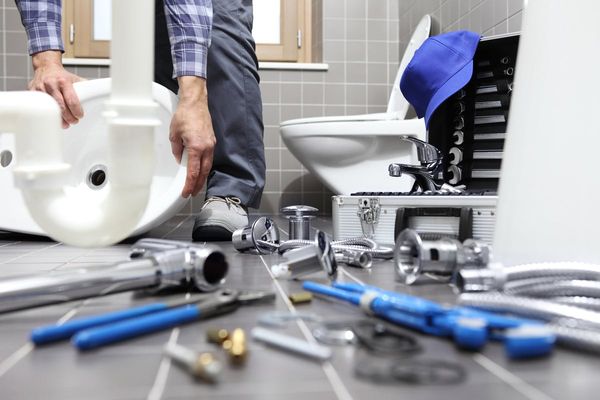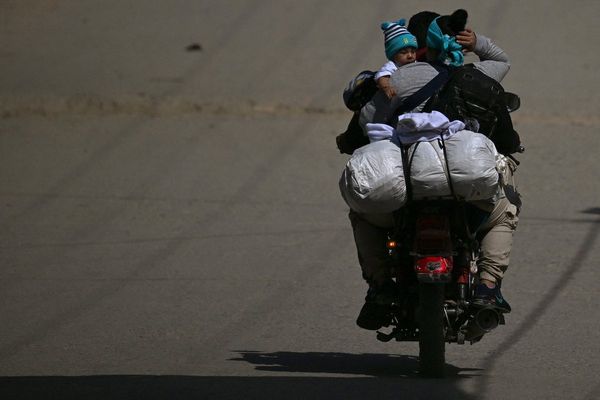This roundup of The Conversation’s climate coverage was first published in our award-winning weekly climate action newsletter, Imagine.
As the UN climate summit Cop30 progresses in the Brazilian city of Belém, there’s much debate about the specifics of climate finance targets, whether the transition away from fossil fuels really can be ethical and how renewables are shaping the global economy. Luciana Julião, editor at The Conversation Brasil, has been busy meeting scientists and experts in Belém, the host city in the heart of the Amazon. She shares her behind-the-scenes insights.
What’s it really like on the ground there, aside from negotiations?
This is a huge event with two official venues. The first is the blue zone, where each country has a pavilion with their own event programme featuring academics, activists and environmental changemakers. This is also where the diplomatic negotiations are taking place.
It’s enormous – about the size of 17 football pitches. Discussions have ranged from the mathematical modelling being used to design disaster alerts to the new tech that’s bringing renewables to traditional communities.
About a mile away from that, the other official venue is the green zone which is open to the public. Slightly smaller (the size of 14 football pitches), this is where side events take place, with representatives from environmental charities and other movements plus universities.
Events are happening all over the city and free buses are shuttling delegates and participants between venues. For example, the free zone is a cultural space where there have been artistic gatherings, cultural shows and Brazilian food. The agrizone is a hub for discussions about farming and food production. The science house is inside the beautiful Emilio Goeldi museum of Pará, the first botanic garden in Brazil. And the Cúpula dos Povos (people’s summit) at the Federal University of Pará (home to the world’s biggest Amazon research centre) is where Indigenous communities are hosting events.
Which side events have been most fascinating?
Kerstin Bergentz, a researcher at the Scripps Institution of Oceanography at the University of California, San Diego, is doing her PhD in physical oceanography. At an event in the ocean pavilion, we spoke about how, even though half of the air we breathe comes from plankton, the oceans don’t get a mention in the Paris climate agreement or in most Cop negotiation texts.
“[The ocean is] such an important part of our climate system and our global earth system, but it’s still not getting enough attention on the global climate agenda,” says Bergentz. “We are all 65% water, and billions of people around the world rely on the ocean for their daily food, for sustenance, for their way of life … [The ocean] has absorbed 30% of anthropogenic CO₂ emissions and 90% of the excess heat associated with those emissions.
"Why do we talk about the Amazon rainforest so much but we don’t talk about the ocean? Maybe [it’s partly] a marketing issue … [because the oceans don’t get as much attention as land-based climate issues]. I also think it’s the fact that 41% of the ocean is in what’s called EEZs or exclusive economic zones. So that’s 200 nautical miles from the coastline, right? And that’s governed by individual countries.”
That, she explains, leaves almost 60% of the ocean – the high seas – as no man’s land. “That’s the biggest ecosystem on this planet, but who’s going to be responsible for that?” Of course, in 2026, a new high seas treaty is due to come into force which heralds a new era of ocean governance – if states can balance conservation with a growing scramble for deep-sea resources.
Another session that really resonated with me was about environmental racism.
Mauricio Paixão, professor at the Federal University of Rio Grande do Sul, Brazil, is studying how the consequences of intense floods in 2024 in Brazil’s most southernmost state are far from fair. “We hear a lot in Rio Grande do Sul, that the disaster was democratic, that it affected rich and poor, white and black, but in practice, despite affecting everyone, the recovery was not and is not being equal for all these groups.”
He has been observing how environmental racism has unfolded in two badly affected neighbourhoods: Menino Deus, a wealthy part of the city, and Sarandí, a poor neighbourhood with a large presence of Black people among its residents.
While the disaster affected everyone, the cleanup took longer to reach the neighbourhoods with the largest Black population. Paixão says that it’s “impossible” to separate the economic issues from the social, ethnic and gender issues. “When the water receded two weeks later, it looked like Menino Deus had never experienced a flood before, while Sarandí was still covered in accumulated garbage and mud. This is a very clear indicator of environmental racism.”
He spoke about removing ideas of intention from the environmental racism debate: “I can’t conceive that someone in a management position would say or think, ‘I’m going to take an action thinking about harming the Black population.’ I don’t think that happens. The idea of environmental racism isn’t in the intention, it’s in the consequence. So the fact that people in management positions don’t consider the demands of Sarandí because they are unaware of the demands of Sarandí, shows a disconnect from reality. And if you’re not connected to what’s happening in the city, you’re going to commit an injustice, and injustice in a racialised context implies environmental racism.”
Who is here, who is not?
Officially, 194 parties are here (that is 193 countries plus the EU delegation, out of a total of 198), with 56,118 delegates registered. But there are not many leaders of those nations present. According to official stats, presidents or official representatives are here from only about 70 countries. The absence of the US president is the most noted and commented on. There are so many people here from Indigenous and traditional communities coming closer to climate negotiations than ever before.
What is the Amazon setting actually like?
Belém is in the forest. Take a small boat for a few minutes, and you can navigate through its rivers to an island covered in tropical forest. It’s a wonderful experience.
It’s a very hot city with temperatures around 30-34°C. It’s humid here so it feels so much hotter than that. It also rains a lot. People here in Belem have a saying that they have two different seasons in the year: one in which it rains every day and another in which it rains all day long.
Right now, it’s raining every day. There’s lots of sunshine but usually in the afternoon, rain is torrential and fast. Then within about 15 minutes, the sun is shining again. People often joke when making arrangements by asking, when are we going to meet, before or after the rain?
Is the atmosphere one of hope or frustration?
I’m not covering official negotiations, but the many scientists and participants I have been talking to have told me two things. First, this is the Cop with the highest presence of Indigenous and traditional people. This elevates their perspectives and contributes to a feeling of hope rather than frustration.
Second, this Cop30 needs to be the Cop of implementation, not just discussion. We already have enough paperwork and knowledge, now it’s time to put those decisions and insights into practice and make the changes happen.
So we still don’t know if there will be any significant advances, but I can tell you the feeling is of hope. Let’s see. Time will tell.
Don’t have time to read about climate change as much as you’d like?
Get a weekly roundup in your inbox instead. Every Wednesday, The Conversation’s environment editor writes Imagine, a short email that goes a little deeper into just one climate issue. Join the 47,000+ readers who’ve subscribed so far.
This article was originally published on The Conversation. Read the original article.







